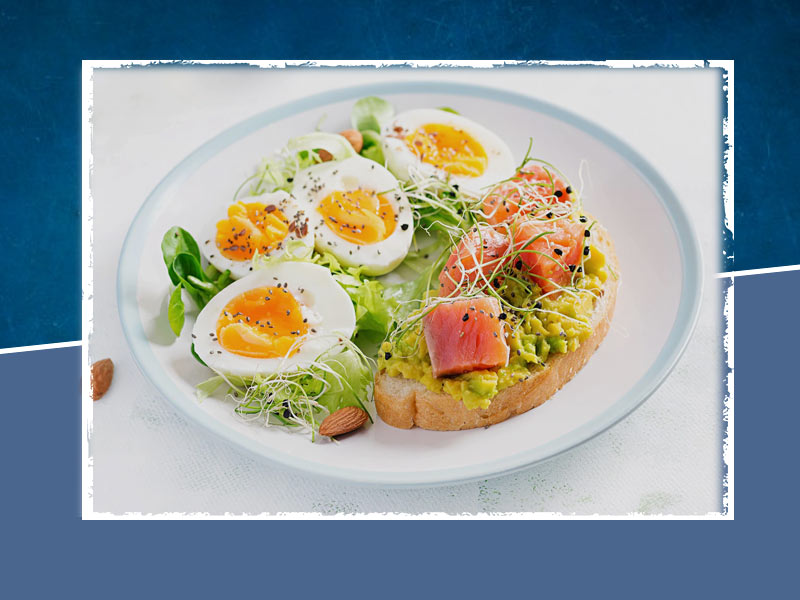
We all know that getting enough protein in our diet is beneficial to our health, but why is that? Proteins are found in every cell, tissue, and bodily fluid. It is an important component of our diet, and should account for 15–25% of our daily energy consumption. Amino acids are abundant in proteins, and your body need nine essential amino acids. While animal protein sources have a higher number of amino acids, plant protein sources tend to have a lesser amino acids value in terms of quantity, and eating only one type of them can imply that you're missing out on important amino acid sources. And therefore, protein complementation becomes crucial in such situation. Know more about complete incomplete and complementary proteins by Dr. Archana Batra, Dietitian, nutritionist a Certified Diabetes Educator.
Table of Content:-
What are Complementary proteins?
Why complementary proteins are essential is because people who eat a vegetarian or vegan diet, or who opt to eat little animal products, to ensure that their daily protein intake is appropriate. By mixing two or more protein sources instead of just one, protein complementation ensures that you obtain all nine amino acids in your diet. Complementary proteins don't have to be ingested all at once; as long as they're consumed throughout the day, our bodies get what it requires.
- As a result, combining beans, grains, legumes, nuts, seeds, fruits, and vegetables every day guarantees that you obtain your daily amount without sacrificing any important nutrients.
- While traditional Indian diets do a good job of incorporating all of them, you may need to be more deliberate if you're looking at other cuisines.
- Eggs, milk, soy, cheese, fish etc are few non-meat foods that are complete proteins. Whereas, seeds or peanuts, beans, grains, corn and vegetables are plant based complete proteins.
- Individually, these sources lack certain amino acids but when combined together can form a great source of complete proteins meals.
Also Read: Are You Eating Enough Lentils Or Dal For Protein? Know How Much To Eat

Complementary proteins examples
If you are wondering how to complete incomplete protein, check out these complementary protein combinations and add them to your diet:
Whole wheat bread with Peanut butter
Like grains and legumes, peanut butter contains very low methionine content, an amino acid that plays an important role in the function of body but a high lysine content, that helps fight against viruses and other infectious microbes. Because whole wheat bread is low in lysine but high in methionine, the combination of whole wheat bread & peanut butter is a good complete protein.
Rice and Beans
Rice and beans are also among one of the classic examples of combining proteins. Rice protein has a lot of cysteine and methionine but not a lot of lysine, whereas amino acid methionine is scarce in bean protein. So their combination forms an amazing complementary proteins meal.
Also Read: Health benefits of Kidney Beans That Would Make You Love Rajma Even More

Hummus and Pita Bread
Hummus is made from garbanzo beans that are high in lysine and tahini (sesame paste), that are high in methionine. Combining the two together along with pita bread makes a rich complementary proteins meal.
Important Things To Note
There are a few things to keep in mind to ensure that your protein supplementation is both effective and healthful:

- You must change you diet plan from time to time. Vegetables and plant-based proteins can help your body meet its nutritional requirements.
- Complementation can be reduced by eating a diversity of protein sources. This is a great alternative for people who want to maintain their health but are on a tight budget.
- Nonvegans can benefit from high-protein foods such as eggs, dairy, milk, and cheese.
- Vegetarians can eat tofu and tempeh, which are soy-based foods.
- You can also prefer Plant-based foods such as nuts, grains, seeds, and vegetables if you are focusing on your calorie intake or count.
- Combine these complimentary proteins with oatmeal, spinach, or broccoli to ensure that you meet your daily protein requirements.
- When doing aerobic exercise, proteins are also necessary.
Variety is beneficial regardless of your eating pattern. Whether it's vitamins, minerals, antioxidants, or, in this case, important amino acids, eating a variety of foods in the right amounts can help prevent nutrient deficiencies and in that case, complementary proteins helps maintaining a healthy lifestyle.
Image credits- freepik
Also watch this video
How we keep this article up to date:
We work with experts and keep a close eye on the latest in health and wellness. Whenever there is a new research or helpful information, we update our articles with accurate and useful advice.
Current Version
